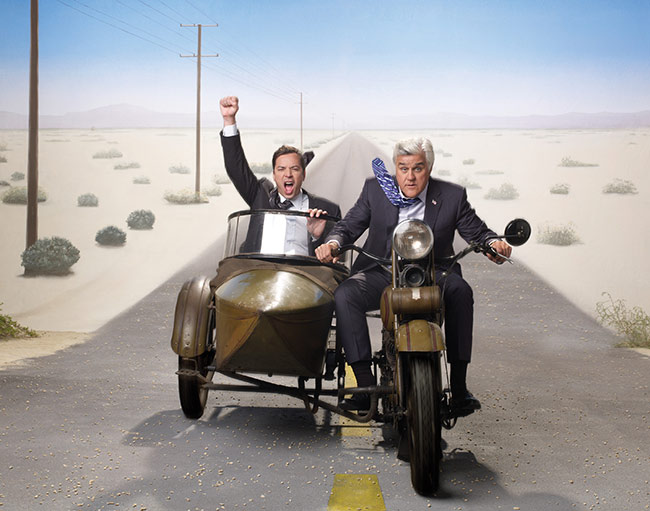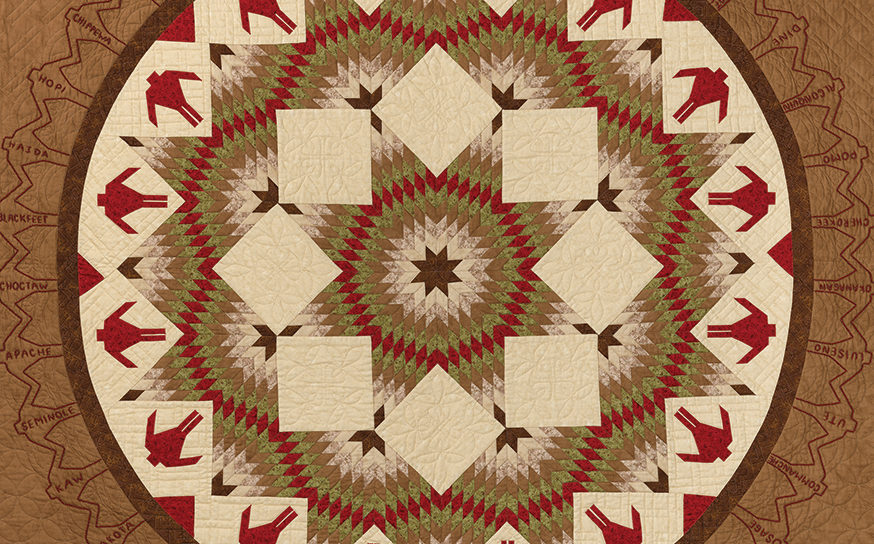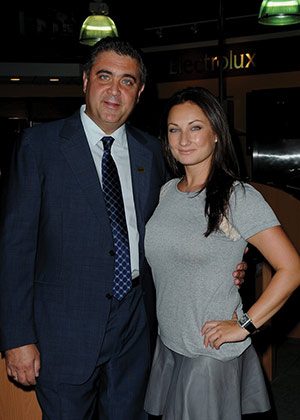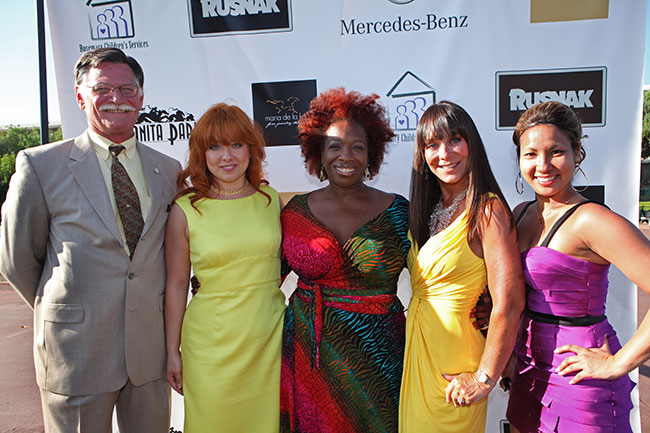
The Tonight Show
Paying tribute to an icon of the Valley on the eve of its exodus
-
CategoryUncategorized
-
Written byDavid Konow
Since The Tonight Show’s 1954 debut, host changes have been part of its DNA. Original front man Steve Allen laid the foundation. Jack Paar was the first successful replacement host. Then came Johnny Carson, who ultimately became comedy royalty.
After Carson bowed out gracefully in 1992, a highly publicized bloody battle was waged over his throne, which Jay Leno ultimately won over David Letterman. And now there will be yet another changing of the guard, with 39-year-old Jimmy Fallon taking Leno’s seat at the desk of The Tonight Show on February 24, 2014.
And there is another monumental change on the horizon. For the first time in more than 40 years, the show won’t be taped at NBC Studios in Burbank. The entire production will move to Jimmy’s turf and the show’s original home, New York City.
“I think most people are sad that it’s leaving,” says former TS talent booker Stacie Gottsegen. “The Burbank lot was a fun place. Those hallways are teeming with memories. The lot is the perfect picture of NBC in its heyday. The peacock, the Bob Hope specials, The Tonight Show … that’s what you think about when you think of NBC.”
“It was a thrill to go to work on the Burbank lot every day,” says comedian Jimmy Brogan, one of Jay’s longest-running writing partners. “The history of it, the big murals of Johnny on the wall—Johnny was the highlight of every comedian’s career.”
Acclaimed guitarist and former TS musical director Kevin Eubanks says he has grown to love this world-famous, far-east corner of the Valley. “It’s hard to see it go, and I can’t imagine the people of Burbank will feel good about it. They’ve enjoyed and appreciated the show being there for so many years in so many ways.”
As Burbank mayor Dave Golonski told the New York Daily News, “The Tonight Show has been part of the fabric of Burbank for so long. It’s an iconic fixture in our community. We feel a special connection with .”
A KING CALLS IT A NIGHT
After 4,530 episodes, Johnny Carson finally stepped down from The Tonight Show on May 22, 1992. Jay Leno and his staff left early that day. Stacie Gottsegen recalls, “There was no hand-over, no tossing of the baton. It was their moment. I think it had to be their moment.”
The press was not allowed to attend Johnny’s last show, but Esquire writer-at-large Bill Zehme, who has covered Dave, Jay and Johnny over the years, snuck in with the help of a publicist. “The atmosphere in that studio on that final night felt a little like church,” he says. “There we were to stoically behold the last words of Carson, America’s greatest late-night deity.”
The following Monday was Leno’s first day on the job. The new host and Jimmy Brogan walked into Johnny’s old studio, and everything was cleared out.
“The set was gone,” Jimmy remembers. “The seats were still there, but it was just an empty studio. In a weekend it was all gone, and it was really sad to see how quickly that went away.”
HEEEEEERRRRRRE’S JOHNNY!
The Tonight Show first came over to “beautiful downtown Burbank” from New York in May 1972—a move that turned out to be fortuitous for both Johnny and the show. “When Carson went West, he’d served 10 years in New York during a time when the city was arguably at its most glamorous and/or exciting,” Bill Zehme continues. “Hello, Mad Men! Once he’d become ensconced as a Burbank fixture, his aura became all the more indispensably perfect. He taught America more about California living than any performer in history—so much so that we were all in on the joke, no matter how off-kilter the joke may have been.”
For millions of Americans, watching Johnny before bed was as much as of a ritual as brushing your teeth. “The Tonight Show was the thing to have on,” says comedian Robert Klein. “I wonder how many babies were conceived with Johnny Carson in the background.”
While Johnny didn’t invent the late-night template, (Steve Allen, Jack Paar and Jerry Lester are credited with that), Robert says that Johnny was “the best, a master, and he was as good on the day that he left as the day that he came.”
Comedians like Robert loved the fact that Johnny Carson knew the mechanics of comedy and wouldn’t step on your punchline. “Johnny was generous,” he continues. “He was an expert, and he’d help you.”
Robert put in more than 80 appearances on The Tonight Show, making his debut in 1968 when Johnny was still in New York. As would be expected, Robert’s first Carson appearances were filled with tremendous anxiety and excitement.
“I must say that on Carson I was never quite as relaxed and at ease as I was on Merv Griffin or Mike Douglas, Cavett, Letterman,” Klein says. “Rodney Dangerfield was my mentor, and he said, ‘On The Tonight Show, you prepare!’ Rodney’s life was so disorganized in those days, but he would prepare three months in advance for The Tonight Show. It was everything.”
Comedians like Freddie Prinze became overnight sensations after making Johnny laugh, and the ultimate anointment was being invited to sit down on the sacred couch. Just a small handful of comedians passed the crucial Carson test, including Dave and Jay in their stand-up days, Eddie Murphy, Jim Carrey and Jerry Seinfeld.
Six-time TS performer Jimmy Brogan described his first experience as “a magical, magical moment.” Jimmy finally got to sit next to Johnny on his last appearance on the show, just months before he retired. Deflating his balloon a little, a TS producer joked, “Oh, everybody’s sitting down now!” But Jimmy adds, “It was still exciting.”
Looking back on Johnny’s reign, what stands out are images and impressions. You’ll always remember the upbeat, swingin’ TS theme—one of the most recognized pieces of music in the world, Johnny laughing so hard he’s drying tears from his eyes, and most of all how easy he made it all look.
Jay Leno would never be another Johnny—no one could be, and as Stacie Gottsegen says, “What Jay walked into was a kingdom. There wasn’t anyone who wasn’t going to make the comparison to Johnny, because every single person who sat behind the desk of a late-night talk show grew up watching Johnny. But Jay did the best ‘Jay Leno show’ that he could do.”
photographed by Paul Drinkwater/NBC
THE MAN WHO WOULD BE KING
When Jay came aboard, the hope was it wouldn’t be a seismic shift but more of a natural progression. At first Helen Kushnick, Jay’s infamous former manager, wanted the new TS to be a combination of other successful late-night shows. She thought of putting in elements of what Johnny did well, along with some political people to compete with Nightline and younger musical guests to compete with Arsenio.
Yet Stacie feels, “As soon as Jay stopped listening to everyone else and did the show he wanted to do, that’s when he became a success.”
As Jay tried to find his footing, NBC built him a new studio better suited to his style. Where Johnny Carson was more of a distant comedy god who was less approachable, Jay was the working man’s comedian who was more affable. He felt more comfortable with the audience closer to him, akin to performing in a nightclub.
After several years, Jay got his biggest on-air break thanks to—of all things—a hooker. When actor Hugh Grant made his first public appearance after being caught with a prostitute off Sunset Boulevard, Jay couldn’t help but inquire, “What the hell were you thinking?!” The hilarious segment made international headlines and, at that moment, he was finally crowned the new king of late night.
Jay’s monologue was one of the strongest areas of the show, honed from years of slugging it out in clubs. Like Johnny, he had funny characters like Mr. Brain and Iron Jay. Other Leno specialties were pointing out the unintentional hilarity of newspaper headlines and “Jaywalking”—his version of the “man on the street” interview.
“There are so many classic moments from working with Jay,” says Kevin Eubanks. “Performing with the troops overseas to wrestling with Hulk Hogan to screening sci-fi movies when the only two things on his mind were, ‘My new manufactured parts just came in, how long is this movie and what on earth is it about? Hey Kev, what is this? I don’t get it. Is it anything?’”
SAYING GOODNIGHT
Both Johnny Carson and Jerry Seinfeld (Seinfeld)had often agonized about the right time to leave their shows. When Johnny finally stepped down, he told Esquire in his last interview that he felt he left at the right time, and after his TS exit he completely disappeared into private life.
Jimmy Brogan says that Jay Leno has his head around the fact that he’s finally leaving in February, and to him the timing also feels right. Indeed,Jay seems to be looking forward; he’s got four stand-up gigs booked the weekend his TS reign on comes to an end.
Although there’s speculation that Fox would be a great place for Jay to set up another show, Brogan’s not sure Leno will return to TV. “Jay wouldn’t have the resources of the audience if he did a syndicated show—or a show on one of the networks,” he explains. “I’m sure there will be interest, but I don’t quite see him going anywhere else. He had the greatest job in show business. Anything else would be a step down.”
LATE-NIGHT LEGACIES
We live in a world where anything older than several years ago is considered ancient history. And at one point, there was a concern that Johnny might be forgotten. But that hasn’t come to pass. The Carson American Masters special brought in monster ratings, and a major new biography about Johnny by Bill Zehme will soon be released. A mini-series based on the book is also in development.
Jay’s legacy is harder to define. The comedian himself once told GQ, “I’m not a legacy guy,” yet Kevin Eubanks feels he will be remembered as “the man you could count on every late night to be there for you, for America, in the ways they needed him to be.”
And indeed, it’s the dependability we’ll probably miss the most. After all, it’s only human to resist change, especially when we’ve had Johnny and Jay in our living rooms for so long.
“These hosts are our best soothing bedtime friends,” Bill Zehme says. “A constant that appears at hours wherein we’re all at our most vulnerable. Night has that connective power, especially that particular shank of the night.”
Jimmy Fallon has been described as a modern, internet-age comedian. Perhaps it a good thing in the struggling network TV business to have someone more current at the helm. Still some, like Bill, insist something is lost in this new era where viewers forgo watching the entire program for glimpses at post-show internet clips.
“With Johnny, if you didn’t watch him, then you simply missed him and you couldn’t watch whatever you missed. It was gone. Today I think we miss nothing and at the same time miss everything—the nuances of everything. We’re the poorer for it.”














